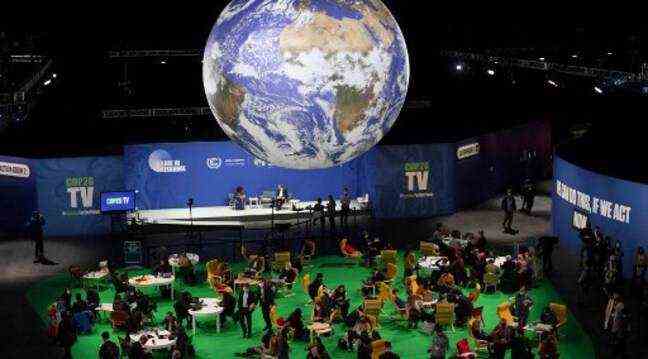Opened on October 31, the COP26 played extra time this Saturday, like many other COPs before it. Before the curtain fell on the Scottish Event Glasgow Campus, after fifteen days of intense negotiations, the 197 member countries of the United Nations Framework Convention on Climate Change (Cnucc) finally agreed on the texts of final decisions which recapitulate what they are committed to in Glasgow.
The COP26 adopted this Saturday a common text intended to accelerate the fight against global warming, but without ensuring to contain it at 1.5 ° C or respond to requests for assistance from poor countries. Dubbed the “Glasgow Climate Pact”, the text was adopted after two weeks of grueling negotiations, a hammer blow from the British president of the World Climate Conference and after last-minute changes introduced. by China and India on the issue of fossil fuels.
” The moment of truth “
The international climate conference COP26 is “the moment of truth” for the planet, had earlier declared the President of Scotland, the British Alok Sharma, during a plenary session in front of the delegates of some 200 countries. . “This is the moment of truth for our planet and it is also the moment of truth for our children and our grandchildren”, he hammered, admitting that the world had not kept the promises made during the adoption of the Paris agreement in 2015 but that the draft final declaration of COP26 “recognized this fact and called for a response”.
This project contains “concrete steps for the future and very clear steps to get us back on track leading to the objectives of the Paris Agreement” which aims to limit global warming “well below” 2 ° C and if possible at 1.5 ° C compared to the pre-industrial era.
As a reminder, this COP26 was presented as the most important since that of Paris – the COP21 – in 2015. For a calendar story, since it opens a 2020 decade announced as decisive in order to keep the trajectory of global warming under the 2 ° C, even below 1.5 ° C ideally, compared to the pre-industrial era. This is the commitment made by the 191 states to have ratified the Paris climate agreement to date. The commitment also urged to hold the Intergovernmental Group of Experts on Climate Change (IPCC), in its reports, so as not to be exposed to an increase in intensity and number, in the future, of the phenomena. extreme climatic conditions.

